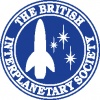Choices at Space Station End of Life
From The Space Library
Author - J. D. Burke et al.
Co-Author(s) - J. D. Burke; K. M. Coderre; J. A. Dator
JBIS Volume # - 64
Page # - 270-274
Year - 2011
Keywords - International Space Station
JBIS Reference Code # - 2011.64.270
Number of Pages - 5
[edit] Abstract
Extending International Space Station (ISS) operations will expand the scope for deciding its fate at its end of life. In this paper we examine the choices likely to be available at that distant unknown day when it is decided, for whatever reasons, to bring crew-directed engineering and science operations to a close. Of course a premature accidental termination is possible at any time, and measures to cope with that (and return to normal if possible) should be kept ready and augmented as ISS service capacities improve, but here we do not focus on accidents. Rather, we consider what may be done with an old but functioning spacecraft after it is declared surplus. We use the technique of Futures Studies to look at the choices. Without attempting prediction, futurists develop a set of empirically-based alternate futures, describe the likely consequences of each, and point to preferred outcomes. For the ISS at end of scheduled operation the choices are in three classes: DOWN, STAY, or UP. In the DOWN choice, after possible salvage and transfer of long-running investigations to another (e.g., Chinese-led) international station, the ISS is commanded to descend and burn up. The STAY choice, not viable in the long run, might be chosen to provide time for later decisions, but eventually it would prove impractical to continue re-boosting to maintain the station in Low Earth Orbit (LEO). In the UP choice the ISS is propelled, by heavy-lift boost impulses or a low-thrust spiral-out or a combination of both, into a high orbit with a lifetime of hundreds of years, opening the prospect of a wide variety of options to be compared in search of a preferred longer-term future. The decision to boost the ISS into a high orbit could be completely rational based on any of several arguments, or it could be partly irrational as in the case of the USS Constitution, an eighteenth- century warship saved from the ship-breakers by a poem.
To BUY this paper click here
JBIS is © 1934-2013 British Interplanetary Society - 
